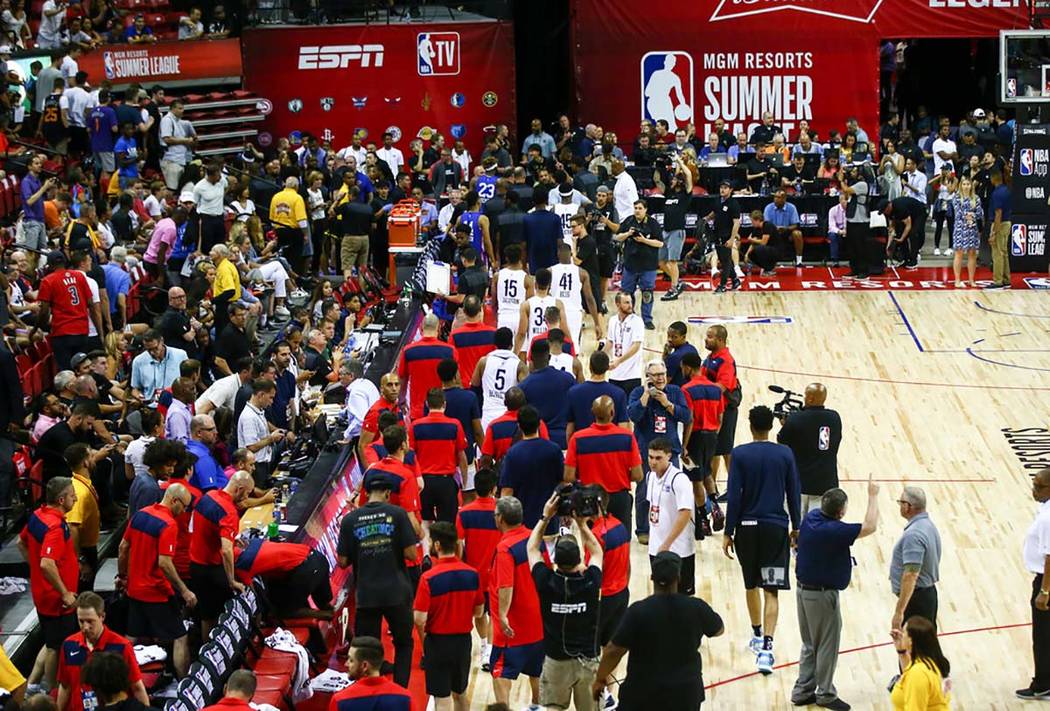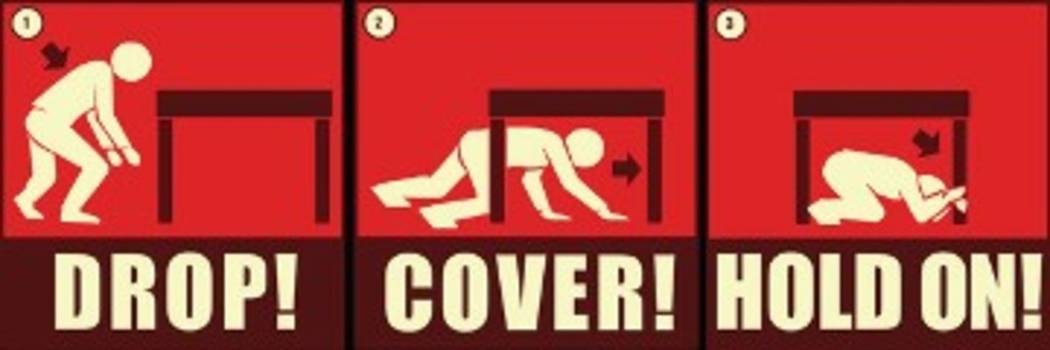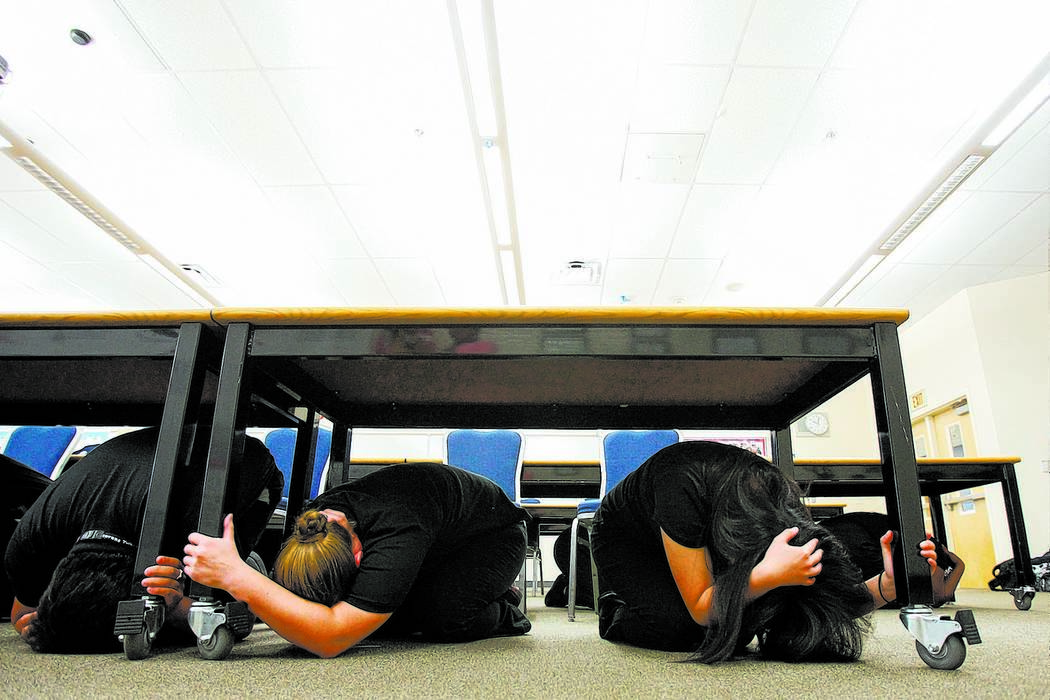Tips for staying safe before, during and after an earthquake
Friday’s magnitude 7.1 earthquake in Ridgecrest, California, left many Las Vegas residents, and their houses, shaking.
Nevada Highway Patrol and Las Vegas Fire Department both confirmed there was no reported damage related to the earthquake, but emergency responders across the valley are using the natural disaster as a prime opportunity to remind residents of ways to stay safe before or during a quake.
Before an earthquake
Clark County Fire Department encourages residents to download the Southern Nevada Community Preparedness app on Apple phones (Southern Nevada Preparedness on Android phones). The app allows users to receive push notifications on natural disasters, set an emergency plan and invite other family members to their plan. The app also encourages users to create an out-of-state contact for emergencies.
Clark County does not use an app that detects and gives users a warning when an earthquake meets a threshold, such as one rolled out in Los Angeles County this year.
Residents also are urged to make a disaster kit with water, nonperishable food, clothes, shoes, money and batteries.
“It’s also a good idea to decide beforehand how and where your family will reunite if separated during a quake and to conduct in-home practice drills,” according to officials with the Federal Emergency Management Association.
UNLV geology professor Wanda Taylor said people should be prepared with extra medication, and a flashlight and radio with batteries.
Most important, she said, is to make sure water heaters are strapped to the wall to avoid broken gas lines or electrical issues.
During a disaster
In an ideal situation, “drop, cover, and hold on” will keep people safe, according to Clark County Emergency Management resources.
“Get near a strong piece of furniture, under a table or desk,” said John Bellini, a geophysicist with the U.S. Geological Survey. “The corner of a building is a good last resort.”
If an earthquake hits while you’re lying in bed, lie face down and cover your head and neck with a pillow.
In more crowded locations like a store, or stadium, sit on the ground and cover your head and neck with your arms.
In a park or outdoor area, moving to a clear spot with no trees or power lines nearby will prevent injury from falling objects. From there, drop, cover and hold on.
More specifically, if in Lake Mead, boaters likely won’t feel anything at all, save for a bit of sloshing.
“There’s nothing to worry about,” Bellini said. “You’re not going to see a large tsunami from a quake like this.”
Bellini said even near the cliffs in the lake, concern is low because “generally landslides related to an earthquake happen near the epicenter.”
If you’re driving, pull over, stop and set a parking brake. Try to avoid bridges, power lines or anything that could fall.
General rules
CCEM reminds residents to avoid windows during an earthquake, not to leave or enter any buildings, and not to use an elevator.
“Running out of the building is definitely the least safe thing to do. If the building will be damaged, things tend to fall off,” Bellini said.
Afterward
Just because the ground stops shaking, officials warn there is still lots to watch out for.
If uninjured, residents should expect an aftershock and move away from anything damaged.
If trapped, officials suggest covering your mouth and making whatever noise can be made externally.
“Earthquakes can occur without any warning or notice,” CCEM warns. For more information, officials encourage visiting the Earthquake Preparedness website.
Sabrina Schnur can be reached at sschnur@reviewjournal.com or 702-383-0278. Follow @sabrina_scnur on Twitter. Review-Journal staff writer Blake Apgar contributed to this report.



















